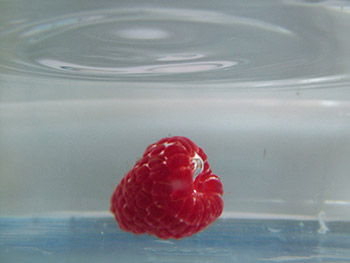Everywhere you go, restaurants, airlines, or vending machines proudly offer ‘Pepsi’ or ‘Coca-Cola’ products. Even TV commercials dazzle us with sexy celebrities chugging down cold-ones.
Fountain drinks at fast-food restaurants or gas stations offer a variety of soda options with sometimes ridiculously large drink containers.
(Admit it, have you had a fizzinator before?)
It hasn’t always been this way… Back in the 1950s, when these drinks first appeared, they were offered in small 7 ounce containers. It was a special treat similar to a candy or ice cream cone.
Today, we chug sodas like there’s no tomorrow.
A small soft-drink from Burger King is 20-ounces and contains around 15-18 teaspoons of sugar. The ‘Home of the Whopper’ doesn’t disappoint with a large soda sized at 40-ounces with around 480 total calories.
For most people, this is almost ¼ of your total calories needed for the entire day!
One word…wow.
It contains tons of excess sugar, extra calories, rots your teeth, and is directly linked to the growing obesity epidemic in our country.
In the United States, 2 out of 3 adults and 1 out of 3 children are overweight or obese. As a result, we spend about $190 billion (“billion” with a B) treating obesity-related health conditions.
On any given day, half of the U.S. population drinks a sugary drink. One study showed that sugary drinks like soda, energy drinks, and sports drinks are the top calorie source in a the typical diet of our teenagers. (see image on right)
Harvard University explained how sugary drinks increase the risk for obesity, diabetes, heart disease, and gout. People who drink 1 to 2 cans of soda a day have a 26% greater risk of developing Type II Diabetes than people who rarely drink those drinks. Regular male soda drinkers also have 20% higher risk of having a heart attack or dying from a heart attack.
For those who are watching their calorie intake, diet sodas may seem like an attractive fizzy alternative. They offer a similar taste, plenty of carbonation, and zero fat or calories.
Still, the artificial sweeteners in drinks like Diet Coke, Diet Pepsi, and Sprite Zero aren’t doing your waistline any favors.
Another study from 2015 found that people who drank diet soda had triple the abdominal fat over 9 years as those who didn’t drink diet sodas. This is the dangerous type of abdominal fat that surrounds your organs (called visceral fat). It is associated with increased cardiovascular disease, Type II Diabetes, and inflammation.
Scientists are not completely sure why diet soda makes people gain weight, but they think it has something to do with the sweetness receptors in the brain. When you drink a diet soda, the brain prepares your body for an influx of calories. If those calories don’t arrive, the body still craves them, and you end up eating other foods to satisfy the hunger.
Artificial sugars in diet sodas weaken the link in our brain between sweetness and calories. They confuse our bodies and cause cravings. These artificial sugars may also cause a drop in the hormone leptin, which helps regular your appetite.
Luckily, the public is starting to take notice of this issue. Sales of soda and diet soda have been falling for a decade and a Gallup Poll says 60% of Americans are trying to avoid drinking soda.
As you can imagine, this is bad news for the soda companies who rely on high sales to earn money for their companies. As a result, they are doing their best to debunk this science and make it seem that soda isn’t quite that bad.
For example, check out a report from the Mayo Clinic Proceedings that argues that the national dietary survey results (which link sugary drinks to Type II Diabetes) are flawed in their reporting. If you read the bottom of the report, you’ll see that the authors received funding from Coca-Cola.
There are numerous other ‘studies’ out there that are sponsored by soda companies. The Guardian reported that studies funded by Coca-Cola have an 83% probability of saying that soda is harmless.
If you are trying to lose weight, there are several options out there that are much better for you than drinking a can of pop day after day. Here are our top five tips for healthier beverages to lose weight:

Learn more about the Health Benefits of Ellipticals. They can help you reduce stress, reduce belly fat, manage ADHD symptoms, and living a longer and healthier life.
Find out more information on our Best Buy Ellipticals list or check out our Elliptical Buyer’s Guide.